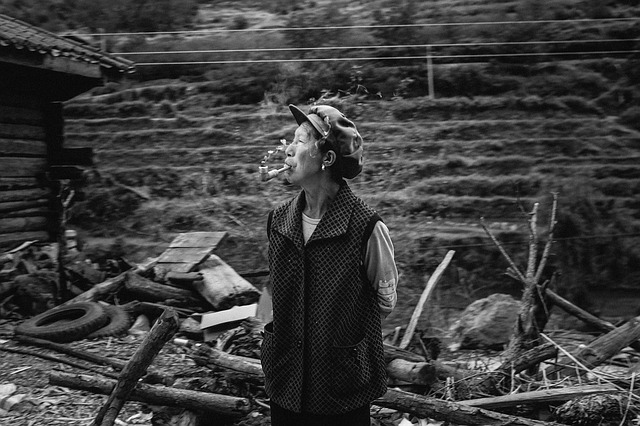
In Asia, instead of embracing tobacco harm reduction strategies that encourage smokers to switch to safer products, the focus of policymakers remains on restrictive control measures, perpetuating high smoking rates and tobacco-related diseases.
Generally, Asia appears to favour tobacco prohibition over harm reduction, with many countries in the region maintaining strict bans or heavily restrictive regulations on safer nicotine products (SNPs) such as e-cigarettes and heated tobacco products (HTPs). Nations like India, Thailand, and Malaysia have banned SNPs outright, citing youth concerns and health risks, while continuing to permit cigarette sales. This prohibitionist (and dare we say – hypocritical) approach limits access only to less harmful alternatives, undermining public health progress.
Sadly the situation seems to be deteriorating further. During the 8th session of Vietnam’s 15th National Assembly, the Health Ministry proposed a ban on vaping and heated tobacco products due to alleged health risks, particularly among youth. Minister of Health Dao Hong Lan cited survey data showing a significant rise in e-cigarette use among Vietnamese aged 15 and older—from 0.2% in 2015 to 3.6% in 2020—with the highest prevalence in young adults aged 15-24. The increase in use, particularly among young women and girls, underscores the ministry’s concern about public health impacts.
To address these concerns, Minister Lan suggested revising the Law on Prevention and Control of Tobacco Harms to include provisions banning vapes and heated tobacco products, and most government ministries and agencies support the proposal. The Ministry of Health is reportedly conducting impact assessments to highlight the products’ dangers, and has also been working to raise public awareness on the alleged health risks associated with these products. The Ministry also proposed a resolution for the National Assembly Standing Committee to impose new taxes on them, as part of a draft Law on Special Consumption Tax.
Echoing similar concerns, Cambodia has enacted an immediate ban on e-cigarettes and shisha. The National Authority for Combating Drugs (NACD) issued a directive to cease all import, sale, and use of shisha pipes and e-cigarettes nationwide. This measure aims to prevent young people from being drawn into smoking through these forms of nicotine consumption.
A local drugs authority spreads misinformation on nicotine
Spreading dangerous misinformation, the NACD alleges that while neither e-cigarettes nor shisha are legally classified as a drug, they contain high levels of nicotine that pose significant health risks, even more serious than traditional cigarettes. By banning these products, Cambodia’s government hopes to curb nicotine addiction among young people and reduce future health impacts associated with smoking.
Meanwhile, Indonesia has recently proposed regulations which would regulate vapes as equivalent to combustible cigarettes. The measures include plain packaging, display restrictions, flavour limitations, and regulations on retail locations for vaping products. The Coalition of Asia Pacific Harm Reduction Advocates (CAPHRA) has voiced strong criticism of these proposed policies.
The group’s Executive Coordinator, Nancy Loucas, argues that these policies undermine efforts to reduce smoking-related diseases by discouraging smokers from switching to less harmful alternatives. She added that plain packaging has not successfully lowered smoking rates in other countries and that graphic health warnings may alienate those who could benefit from safer options.
CAPHRA also criticized a regulatory proposal allowing Indonesia’s Ministry of Health to require manufacturers to prove the harmlessness of any ingredient, a move which contradicts harm reduction principles. Loucas emphasized that globally, vaping has played a key role in reducing smoking rates, and treating vaping like traditional tobacco products restricts access to potentially lifesaving alternatives.
The group calls on Indonesia to adopt evidence-based harm reduction policies rather than restrictive measures. It urges the government to collaborate with public health experts, consumers, and industry representatives to develop more effective, balanced regulations aligned with global best practices.
Japan urged to replicate the success it has achieved with HTPs by endorsing other safer alternatives
In other news, experts at a recent event in Tokyo highlighted the potential for Japan to save millions of lives by adopting tobacco harm reduction strategies like those proven effective in Sweden. Organized by Quit Like Sweden and INES Japan, the event gathered health experts including Dr. Fredrik Nystrom, Professor Marewa Glover, and Professor David Sweanor.
Japan’s success in reducing smoking by over 50% since introducing heated tobacco products in 2015 has been well documented and commended, hence the experts noted that similar approaches could further enhance health outcomes. Quit Like Sweden founding director Suely Castro, emphasized that Japan could replicate Sweden’s results by ensuring that accessible, affordable, and socially acceptable alternatives are available to those wishing to quit smoking.
Sweden’s model has not only led to the country being the first to achieve its smoke-free goal worldwide, but more importantly to the lowest cancer rates and smoking-related deaths in Europe, demonstrating how harm reduction policies can benefit public health. In contrast, Asia’s reliance on the World Health Organization’s (WHO) ideological tobacco control strategy has proven futile in addressing the region’s high smoking prevalence and tobacco-related deaths.
Asian countries need to shift from ideology to science-driven regulations, focusing on harm reduction to complement traditional tobacco control. By allowing regulated access to SNPs, policymakers can provide smokers with effective alternatives, reduce smoking rates, and save lives. Ignoring scientific evidence risks perpetuating public health crises and undermining regional progress.
